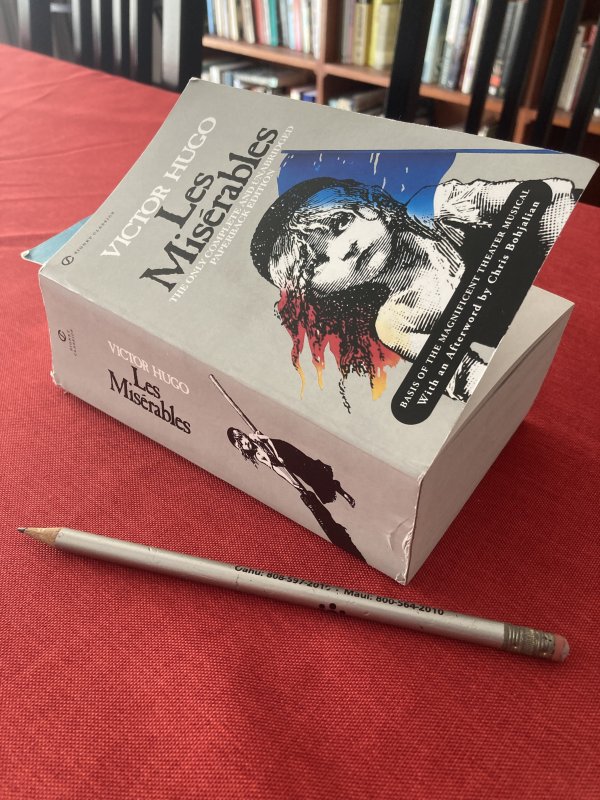FOXTROT LAMONT
One Too Many
- Messages
- 1,722
- Location
- St John's Wood, London UK
In Macau I flipped thru a magazine whiles resting from poker and distinctly recall a Malamud article he himself penned about his private life. Seems his wife up and left their childless marriage, yet fate meets them a few years later. Polite small inconsequential mutually embarrassed small talk but then she asks about their house pet, cat or dog-think it was a dog, that always lay by the kitchen door waiting for her. As Malamud relates still held. And the atmosphere momentarily suddenly froze not simply stopped. A punch to the heart. Couples share so much, with heartache there is love and loss of the most lonely lost self. I believe I came across The Natural last week hunting down McQueen, anything Steverino, and this film box flashed past. Will be sure to look for it. Thanks Fast.View attachment 517880
The Natural by Bernard Malamud, originally published in 1952
The Natural is rightfully considered not just a classic baseball novel, but also a classic American novel, as it explores themes common to the American experience, where individual success or failure is determined by a mix of merit, integrity and fate.
Corruption, greed, honor and sex are also all woven into Malamud's tale of a young baseball talent whose life and career get waylaid for years owing to a senseless act of violence only to have a later resurrection that is equal parts gratifying and disillusioning.
We meet the novel's protagonist, Roy Hobbs, when he is a young professional baseball prospect on a train to a much-anticipated major league tryout. After he has a chance face-off with baseball's greatest hitter of the era, we know that he is a pitching phenom.
A mysterious, attractive and mentally disturbed woman Hobbs meets on the same train later shoots him. She, we learn, has a history of harming promising athletes.
We then reconnect with Hobbs fifteen years later after he has just been signed to the struggling professional baseball team, the New York Knights.
In his return to baseball, Hobbs is now an oddity, a thirty-four-year-old rookie. After overcoming his manager's skepticism to play him, he becomes a star outfielder and hitter who propels the heretofore woebegone Knights into a pennant race.
What follows is a series of personal and professional challenges for Hobbs driven by both his internal demons and external forces as he tries to somehow make up for all those lost years.
Hobbs' natural talent is unquestionable, even at thirty-four and despite never having played major league ball before, he proves to be an elite player. He is devoted to the game mentally and physically, but the pressures and temptations of success begin to interfere with his focus.
Women are one distraction as Hobbs is attracted to the young, pretty, but selfish and greedy niece, the wonderfully named Memo Paris, of the manager, while he talks himself out of liking the older, less-attractive, but good-hearted woman who helps pull him out of a batting slump.
Money too is a distraction as Hobbs is poorly paid because his salary was set for the year before he became a breakout star and, in an era before free agency, he has little negotiating power with the miserly, creepy and corrupt majority shareholder of the team.
As the season approaches the closing weeks of the pennant race and pressures increase, Hobbs, worrying about money, his career and the younger woman, suffers some sort of mental and physical breakdown that could ruin his future.
In a move echoing baseball's famous Black Sox scandal, Hobbs is then tempted with a huge bribe to throw a decisive game; it's enough money to set him up in business post baseball. It proves to be a game that dramatically comes down to his last swing at the plate.
Malamud imbues The Natural with a fantasy-like quality that highlights the timelessness of Hobbs' struggle - a struggle of innate ability, individual drive and personal integrity versus human failings, corrupting influences and the randomness of fate.
Very little is black and white in Malamud's world. Even in a simple pitch or the swing of a bat, life, uncertainty and corruption can rear their heads and mar those seemingly "pure" acts.
In Roy Hobbs we see the American dream both as we wish it to be - a shining city on a hill - and as it is - a complex story full of hope, opportunity, merit, faith, corruption, luck and heartbreak. The Natural isn't the American novel, but it is an American novel.
N.B. While the core story remains, the well-done 1984 movie version of Malamud's tale is changed in meaningful ways.
And finally, regular Fedora Lounge readers of this thread might notice I was late with my "spring training" baseball book read and review this year as, well, life interfered with my regular timeline. That said, The Natural has been on my to-read list for too long, so it was fun to finally sit down with it and use it to "kick off," albeit a bit late this year, the baseball season.



